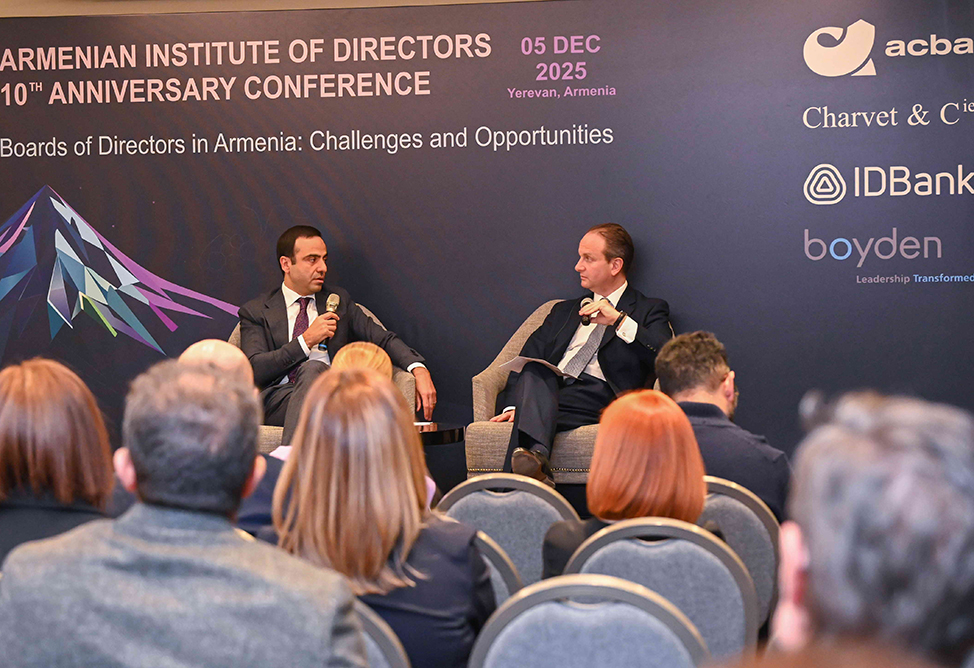Armenia to start next year talks with EU on deep and comprehensive free trade agreement
07.10.2009,
23:20
A deputy economy minister Vahe Danielian said today next year Armenia will start talks with the European Union on the Deep and Comprehensive Free Trade Agreement.
YEREVAN, October 7. /ARKA/. A deputy economy minister Vahe Danielian said today next year Armenia will start talks with the European Union on the Deep and Comprehensive Free Trade Agreement.
According to the ministry of economy, unlike the classical trade regime, the free trade regime is more liberal offering a wide range of pricing privileges. He said to qualify Armenia will need to improve its legislations and bring them in conformity with European legislations.
The possibility of such an agreement is a key element of the EU’s Eastern Partnership program that offers six former Soviet republics much closer integration with the 27-nation bloc in return for political and economic reforms.
Vahe Danielian said Armenia will have to completely revise its standardization and metrology systems and remove other trade obstacles. Danielian was speaking at an international seminar of development of quality demand-based infrastructure in Armenia.
He said before Armenian businessmen could freely sell their produces in Europe ‘We need to bring our metrology and standardization systems in conformity with the European systems after we complete the talks and sign the agreement.’ He said this means that Armenian goods will not need to go through additional certification procedures and the free trade agreement would give Armenian exporters greater access to the affluent European Markets free from tariffs.
Armenia and the EU began talks on free trade in 2007. The EU has long been Armenia's largest trading partner, accounting for 35 percent of its external trade last year.
Trade turnover in 2008 was $1.94 billion. Until the end of 2008 Armenia was subject to EU’s GSP trade regime paying lesser customs dues. On January 1, 2009 Armenia shifted to GSP+ trade regime, which applies to 6,400 names of goods with zero customs dues. Armenia has free trade agreement’s with Russia, the United States, Canada and Japan. -0-
According to the ministry of economy, unlike the classical trade regime, the free trade regime is more liberal offering a wide range of pricing privileges. He said to qualify Armenia will need to improve its legislations and bring them in conformity with European legislations.
The possibility of such an agreement is a key element of the EU’s Eastern Partnership program that offers six former Soviet republics much closer integration with the 27-nation bloc in return for political and economic reforms.
Vahe Danielian said Armenia will have to completely revise its standardization and metrology systems and remove other trade obstacles. Danielian was speaking at an international seminar of development of quality demand-based infrastructure in Armenia.
He said before Armenian businessmen could freely sell their produces in Europe ‘We need to bring our metrology and standardization systems in conformity with the European systems after we complete the talks and sign the agreement.’ He said this means that Armenian goods will not need to go through additional certification procedures and the free trade agreement would give Armenian exporters greater access to the affluent European Markets free from tariffs.
Armenia and the EU began talks on free trade in 2007. The EU has long been Armenia's largest trading partner, accounting for 35 percent of its external trade last year.
Trade turnover in 2008 was $1.94 billion. Until the end of 2008 Armenia was subject to EU’s GSP trade regime paying lesser customs dues. On January 1, 2009 Armenia shifted to GSP+ trade regime, which applies to 6,400 names of goods with zero customs dues. Armenia has free trade agreement’s with Russia, the United States, Canada and Japan. -0-



